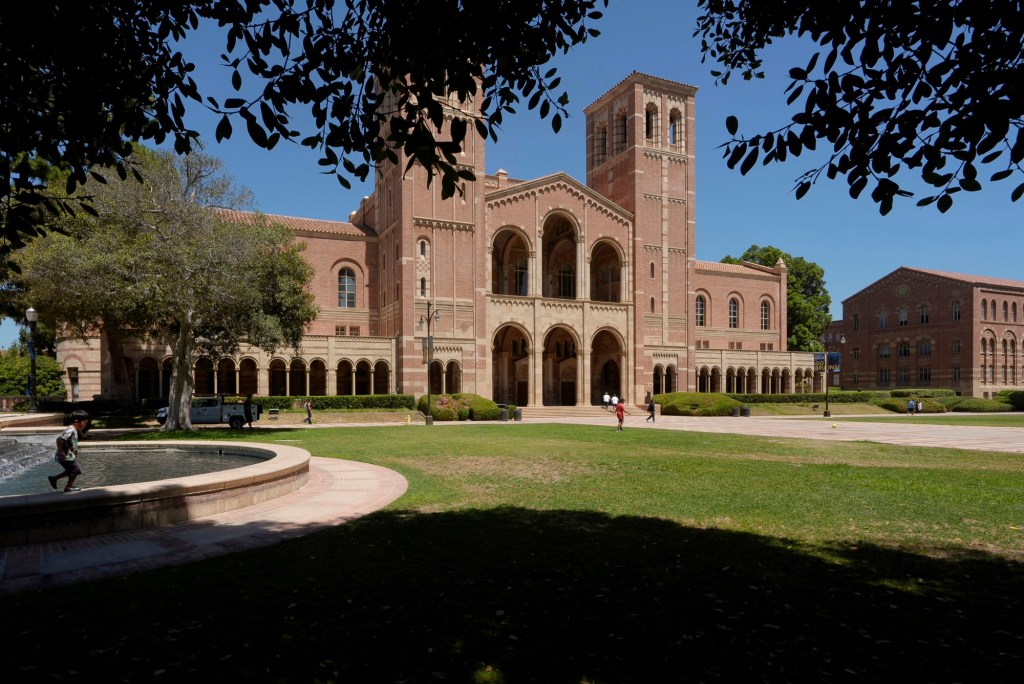
What is going on at UCLA?
An email arrived on July 26 with a surprising message from Emeritus Professor Daniel Lowenstein of the law school.
“Friends,” it began, “With regret I must inform you that CLAFI — the UCLA Center for the Liberal Arts and Free Institutions — is ceasing its operations. The reason is bureaucratic, stemming from a very serious financial crisis that UCLA has put itself into.”
Since 2009, CLAFI has organized and offered outstanding programs illuminating the history and culture of Western Civilization. Through plays, films, lectures and discussions, it has been a cultural refuge where students and the general public could engage with minds from Geoffrey Chaucer to Alfred Hitchcock.
Professor Lowenstein wrote that he was informed in late May that “because of the financial crisis, UCLA has instituted a strict and far-reaching hiring freeze,” and the Humanities Division could no longer provide the minimal assistance of an administrator who was authorized to make payments. “CLAFI has always been financially self-sufficient,” he wrote, and was willing to pay the cost of the administrator, but neither the Humanities nor the Law School could make that work.
“Our plight is not because of any personal or ideological opposition,” he wrote, “but the ineptness of the bureaucratic system at UCLA and some large scale fiscal mismanagement.”
On June 6, the Daily Bruin published a report with the headline, “Student uncovers UCLA budget deficit, USAC resolution calls for transparency.”
The story by Akshaj Mehta said Nicholas Reese, a third-year political science student, discovered while conducting research that the university had multiple financial deficits that had gone “unpublicized.”
Reese told the campus newspaper in a written statement that he had found a $1.27 billion deficit in UCLA’s operations, and the current cost to operate the university is $2.87 billion, up from $1.7 billion ten years earlier.
In addition, the student noted, UCLA has seen a 60% increase in liabilities and debts, has a nearly one-to-one employee to student ratio, and is late releasing the UCLA Annual Financial Report for the 2023-24 fiscal year, which was due to be published on June 30.
Mehta reported that the Undergraduate Students Association Council (USAC) unanimously approved a resolution on March 4 that called on the university to establish a student financial transparency and oversight committee.
Reese said students deserve to know where their tuition is going. “You have rooms getting converted to triples, dining operations likely to get shifted because the budget’s overblown, you have chronic AFSCME strikes,” he told the Daily Bruin, and all of it is “greatly impacting students.” AFSCME local 3299 is the University of California’s largest employee union, according to its website, representing more than 37,000 workers while “relentlessly fighting to provide social justice and economic opportunity not just to UC workers, but to the greater public that we serve.”
So that’s where some of their tuition is going.
In January, UCLA gave its athletic department a gift of $30 million for the fiscal year that ended June 30, 2024. That wasn’t enough to prevent a budget deficit for the year of $51.85 million. It was the sixth consecutive year of red ink for the athletic department, which lost a total of more than $219 million over that period, according to Sports Business Journal.
And that’s where some of their tuition is going. Also, some of it is going to pay UCLA’s $6 million settlement of a lawsuit brought by the Becket Fund for Religious Liberty over anti-Semitism on campus and the university’s insanely hands-off reaction to the takeover of the school grounds by a tent city of pro-Palestinian protesters.
On Wednesday, UCLA announced that the Trump administration has frozen $584 million in research funds while the federal government completes an investigation, begun earlier this year, into anti-Semitism at the university.
But the Trump administration’s actions are completely separate from the fiscal problems that pre-date the 2024 election.
Professor Lowenstein said he will continue to teach and “to do what I can to inspire love for the deep exploration of great works and to do what I can to help students improve their writing.”
But UCLA can’t provide even minimal support for his efforts.
What is going on at UCLA?
Write Susan@SusanShelley.com and follow her on X @Susan_Shelley
Originally Published:



